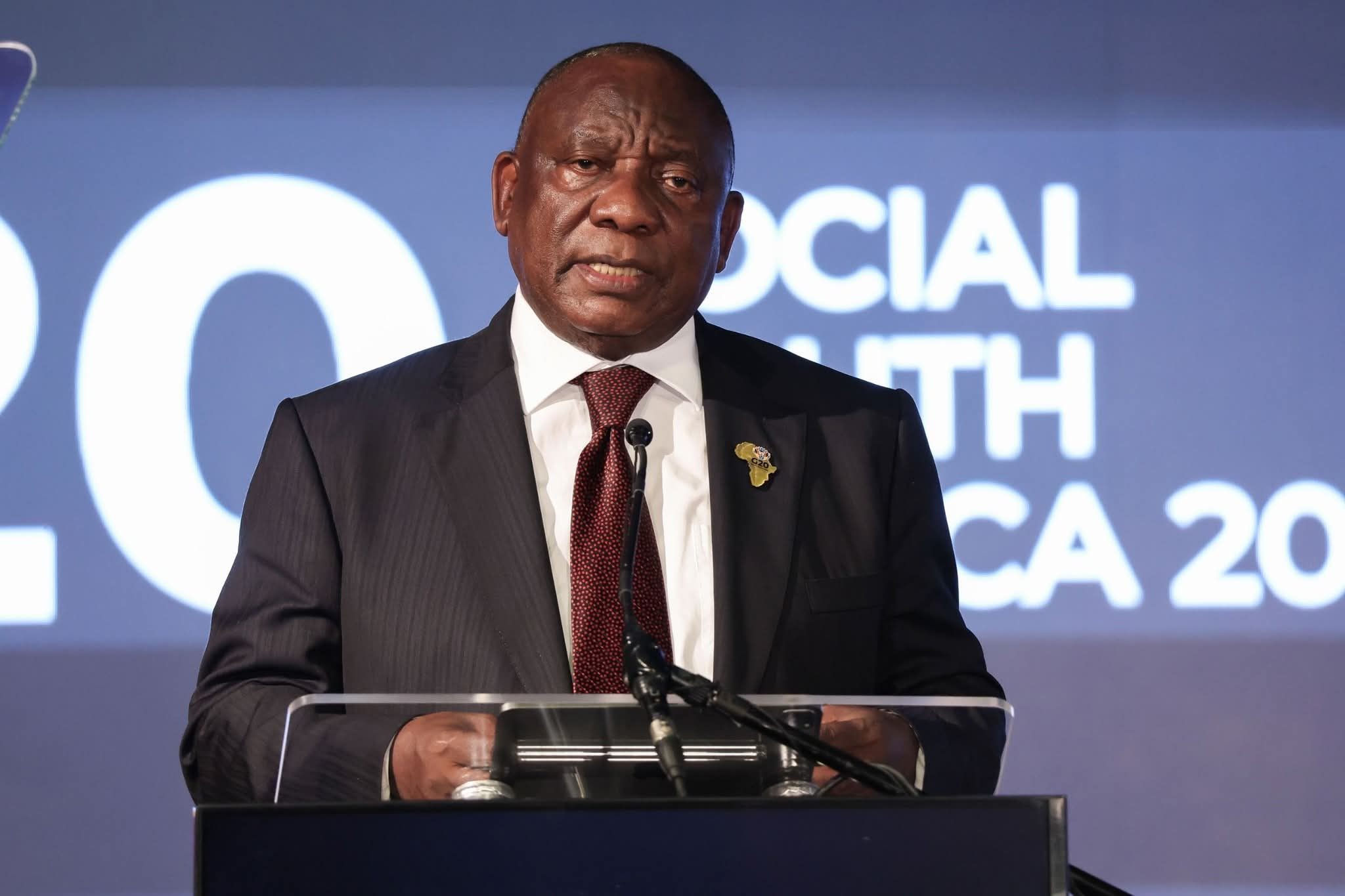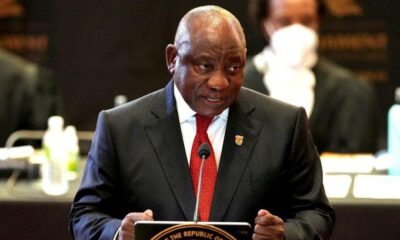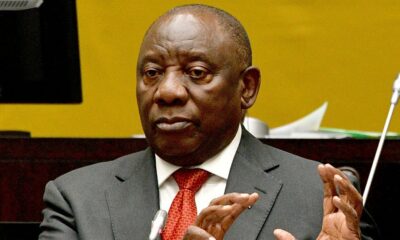News
Ramaphosa Puts GBV on the Global Agenda as B20 Summit Closes: “No Nation Can Claim Progress While Women Live in Fear”

Ramaphosa Puts GBV on the Global Agenda as B20 Summit Closes
“No Nation Can Claim Progress While Women Live in Fear”
For a summit designed to talk numbers, growth curves, and investment confidence, the B20 meeting in Sandton ended on a very human note. President Cyril Ramaphosa used his closing address not to dwell on GDP or trade barriers, but on something far more urgent South Africa’s spiralling gender-based violence crisis, and the global responsibility to confront it.
It wasn’t the speech attendees expected. But it was the one the moment demanded.
A President Who Refused to Separate Economics From Humanity
Standing before executives, policymakers, and global delegates gearing up for the G20 Leaders’ Summit, Ramaphosa made his position unmistakably clear:
There is no economic progress without safety.
There is no growth while women and girls live under threat.
There is no development when half the population is silenced.
His tone was firm, almost solemn.
“No society can thrive for as long as gender-based violence and femicide continue,” Ramaphosa said.
“The violence perpetrated by men against women erodes the social fabric of nations and constrains development.”
For South Africans, the message hit home. We live in a country where daily headlines tell stories of lost daughters, broken families, and communities shaped by trauma. GBV isn’t an abstract concept here, it’s a lived reality.
South Africa’s National Crisis, Laid Bare
Ramaphosa reminded attendees that GBV isn’t just a social concern; it’s an officially declared national crisis. Government, civil society, activists, and businesses have all acknowledged that ordinary measures have failed.
Extraordinary action, he said, is now the only way forward.
And that action must include men, not merely as supporters, but as active agents of change.
“Men and boys must be involved in challenging inherited attitudes and power imbalances that normalise violence.”
This part of the speech sparked strong reactions online.
Within minutes, South Africans flooded platforms like X and TikTok with comments:
-
“Finally, a president saying it loud on the global stage,” one user posted.
-
“We need this energy every day, not only at summits,” another wrote.
-
“GBV is not a women’s issue; it’s society’s disease,” echoed a community activist from Soweto.
Linking Global Growth to Safety, Equality, and Representation
While the B20 agenda centred on inclusive economic growth, Ramaphosa went further, tying global development directly to the wellbeing and empowerment of women, children, and adolescents.
He referenced calls from the G20 Social Summit for:
-
Better political representation for women
-
Increased investment in women’s health
-
Stronger global financing for programmes that protect vulnerable groups
He also quoted revolutionary thinker Thomas Sankara:
“There is no true social revolution without the liberation of women.”
It was a reminder that the fight for equality isn’t new but the world’s response must be.
Civil Society Takes Its Place at the Table
In a nod to the activists who shaped much of the G20 Social Summit’s themes, Ramaphosa praised groups such as Women20, youth movements, labour organisations, and feminist networks.
Their contributions, he said, lent “credibility and legitimacy” to the decisions global leaders will debate in the coming days.
This acknowledgement was welcomed across South African feminist organisations, many of which expressed relief that GBV was not reduced to a footnote but elevated to a global responsibility.
A Challenge to the World Ahead of the G20 Leaders’ Summit
As the world’s most powerful leaders prepare to meet, Ramaphosa’s message was simple but uncompromising:
Inclusive growth cannot exist where violence persists.
Global co-operation means nothing if women and children remain unsafe.
He closed with a warning wrapped in hope:
“We will keep our eyes fixed on the horizon of shared prosperity, but we cannot get there while women and children continue to live in fear.”
A Fresh Interpretation: Why This Moment Matters
South Africa has spoken about GBV before often with frustration, sometimes with fatigue. But putting the crisis on a global stage signals a shift:
-
GBV is no longer treated as a domestic issue but a development barrier.
-
Business leaders are now being called to act, not just policymakers.
-
Men are being publicly urged to take responsibility, not quietly sidelined.
-
Safety is being reframed as an economic necessity, not just a moral one.
In a world overwhelmed by geopolitics, conflict, and soaring inequality, South Africa has reminded the global community of a simple truth:
You cannot measure progress by spreadsheets alone.
Sometimes, the real test of a nation’s strength is whether its women can walk safely in the streets.
{Source: Times Live}
Follow Joburg ETC on Facebook, Twitter , TikTok and Instagram
For more News in Johannesburg, visit joburgetc.com

























